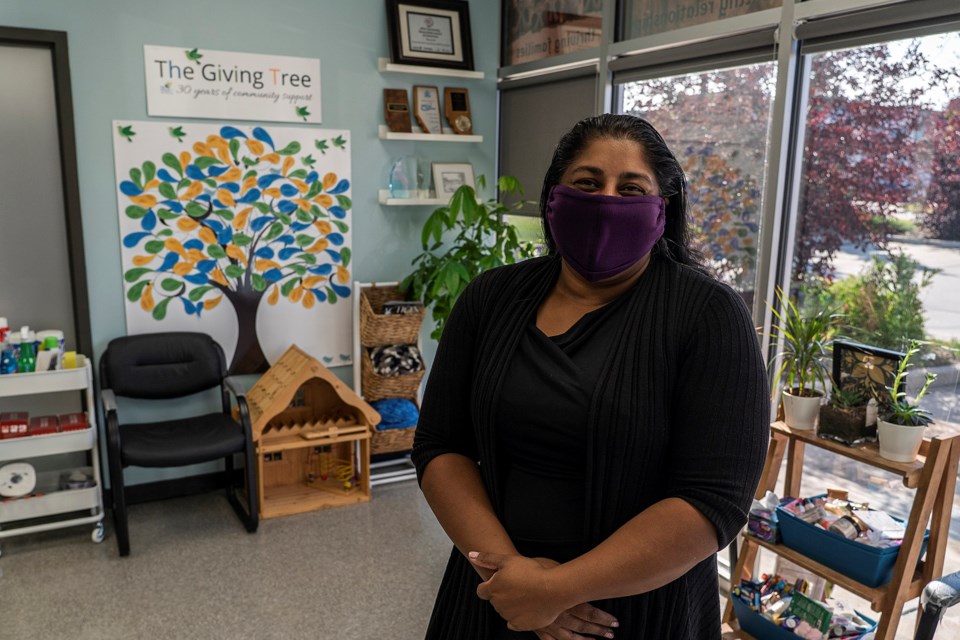For many local organizations, a helping hand couldn’t have come at a more precarious time.
The St. Albert Community Foundation (SACF) recently announced it had completed its distribution of $40,000 of the Government of Canada’s Emergency Community Support Fund to 10 different local organizations on behalf of Community Foundations Canada (CFC). Announced in May, this was part of the federal government’s $350-million package of COVID-19 relief funding to help charities and community organizations that serve the country’s most vulnerable populations. The money flowed through three nationwide partners, including CFC, United Way and Red Cross.
As expected, the SACF received more applications than it was able to support, leaving some groups still in the lurch.
The Rotary Club of St. Albert, with its own finger on the pulse of the local need, stepped up with its own emergency funding as well.
For many organizations, the aid offered some critical relief even if it was a stopgap measure.
Starting in September, the SACF said it would be back to business as usual by accepting applications for its regular funding streams.
“My fear is that people will think that was what we finished doing, and it isn't. We have lots of funds this year,” explained foundation representative Doug Campbell.
“There's a difference between the two sets of grants that we gave out. (The) $40,000 we gave out through the fund was actually for COVID relief for organizations that were under the gun to deliver their services and needed help. Our regular granting may have some of that, but still it is open to regular granting and funding.”
Rotary Club of St. Albert membership chair Craig Malin said the service club established a task force back in the early spring when the pandemic had shut everything down and community groups were reeling with cutbacks and layoffs. He couldn’t say that the timing was à propos but they were already looking for a signature project for the club’s 30th anniversary. The board reallocated some of its funding for that project, put a big ‘relief’ sticker on it, and then they set their sights on many of the city’s under-reported groups.
“We wanted to look at smaller organizations that may fly under the radar. Everybody knows about the St. Albert Food Bank, but everyone also knows that T8N100 gave them a pretty good chunk of change – not to say that they were flush, but there were potentially other organizations less well-known that could probably use our help as well,” he said, adding they also took into account organizations that were themed around mental health supports, vulnerable seniors and youths.
SAIF’s struggles and successes during COVID
St. Albert Stop Abuse in Families was one group that benefited from both emergency funding supports, and for good reasons. As the pandemic hit, the family violence and domestic abuse counselling agency felt not only the pinch of falling finances but also the sting of rising demand.
“It's always been the community that has supported us and about 50 per cent of what we raise and how we're able to do all of our counselling for free really comes from the community. Rotary is just another community partner that has been able to step up in and provide us some support for the elder abuse program,” offered executive director Areni Kelleppan, noting how SAIF was cut from the provincial Victims of Crime Fund at the end of 2019.
“The elder abuse program was paid for out of that fund entirely. When that was cut, it was about $40,000. Our board decided to continue the program as best as we could until the spring. That was, of course, all pre-COVID. We said, ‘We'll cobble the money together’ ... because elder abuse was a growing program. We just were inundated with elder abuse clients.”
They did indeed cobble some money together with help from United Way through the St. Albert Food Bank and other charity partners, but there would typically be additional fundraising through the Autorama event, which was cancelled.
With the CFC and Rotary relief funds now in its bank accounts, SAIF is still facing the spectre of shutting down its elder abuse program after November. Kelleppan said her staff can manage to keep it afloat with a bare minimum of $28,000. They’re still a long way off of reaching even that, however.
All of this comes on top of SAIF recently moving its offices to a downsized and downscale space. The crisis-ready staff managed that, too, with much aplomb.
“I cannot blame COVID for the move. I can blame COVID for everything else that we've been dealing with, for sure.”




